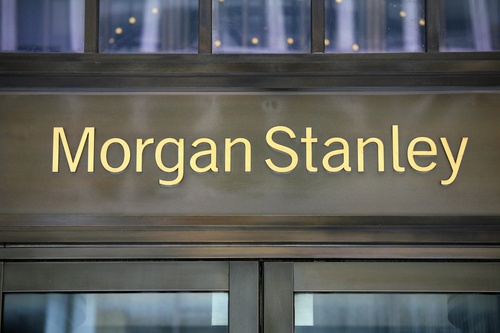Vers la fin du télétravail
Pour le moment, les employés, mais aussi les visiteurs, les sous-traitants et les clients souhaitant se rendre dans les bureaux de Morgan Stanley à New York peuvent se contenter d’une déclaration sur l’honneur pour prouver qu’ils ont reçu toutes les injections requises du vaccin contre le Covid-19.
Toutefois, la banque n’écarte pas la possibilité de leur demander, à l’avenir, une preuve de leur statut vaccinal. Ces nouvelles mesures entreront en vigueur à partir du 12 juillet, et visent, selon la direction, à favoriser un retour à des conditions de travail normales, sans masque ni gestes barrières.
Lors d’une conférence le 14 juin, James Gorman, le patron de Morgan Stanley a exprimé son souhait de voir revenir l’ensemble de ses salariés au bureau à partir de septembre. « C’est dans les bureaux que nous faisons notre travail […] C’est là que nos stagiaires apprennent. C’est là que nous permettons à nos salariés de grandir », a-t-il alors déclaré.
À partir du 12 juillet, le personnel non vacciné, qui ne représente selon James Gorman que 10 % des employés présents dans les bureaux, n’aura pourtant d’autre choix que de rester en télétravail.
Une mesure légale aux États-Unis
D’après l’agence fédérale américaine chargée du respect des lois contre la discrimination au travail (EEOC, ou « Equal Employment Opportunity Commission »), une telle obligation de vaccination est légale de la part des employeurs, sauf si elle s’oppose à un motif religieux ou à une contre-indication médicale. Les employeurs sont également en droit d’exiger une preuve du statut vaccinal, à condition de conserver la confidentialité de ces données médicales.
Aux États-Unis, d’autres établissements mènent actuellement une réflexion similaire à celle de Morgan Stanley. Ainsi, le gestionnaire d’actifs BlackRock a lui aussi décidé d’exiger de ses employés qu’ils soient vaccinés contre le Covid-19 pour pouvoir revenir travailler en présentiel à partir du mois de juillet.
Goldman Sachs et JP Morgan n’interdisent pas l’accès aux bureaux des salariés non vaccinés, mais leur demandent de préciser leur statut vaccinal de façon anonyme. Les salariés vaccinés de Bank of America seront quant à eux, à partir de septembre, prioritaires pour venir travailler en présentiel.
En France et dans les autres pays européens, aucune mesure semblable n’est à l’ordre du jour dans les établissements bancaires, qui favorisent un retour progressif au bureau, contrairement aux banques de Wall Street qui jugent le télétravail contraire à la culture d’entreprise et accentuent la pression sur leurs employés.
